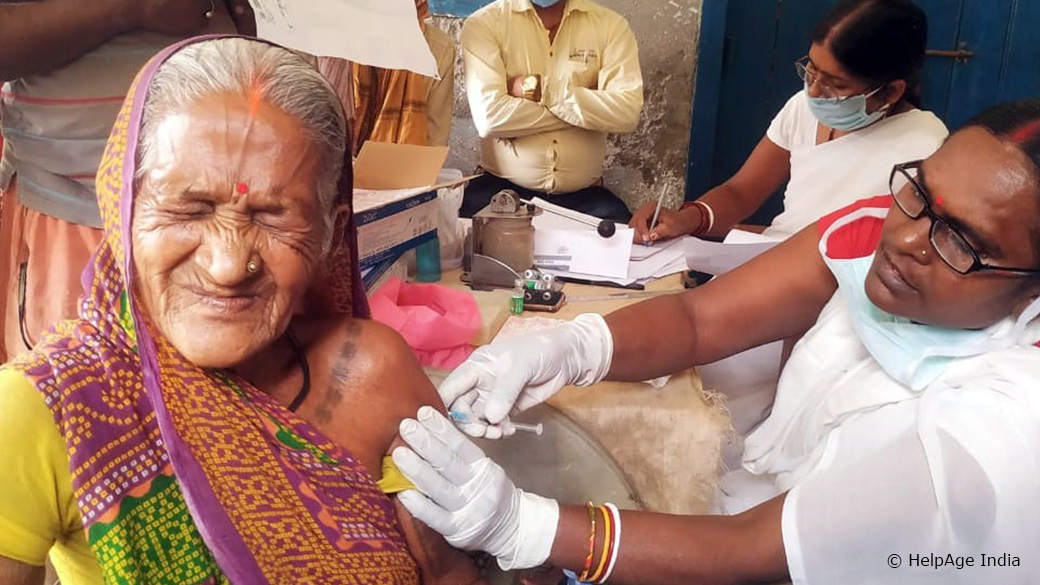The second wave of COVID-19 is devastating India. There are hundreds of thousands of new infections and thousands of deaths every day. Across the country, the healthcare system has collapsed under the crushing weight of the pandemic. It is not going away and families and communities are searching for help to get treatment and food to keep alive.

The challenges for older people to protect themselves against Covid further impacts on their isolation and exclusion; they are at higher risk of serious illness and their odds of survival are the lowest. Vaccinations are in short supply and older people are not a priority. Vaccination is open to everyone over 18 years-old and competition for limited doses means older people are struggling to get the protection they desperately need.
Many have lost their livelihoods and family members; there is shortage of money to buy food or medicine and as everyone competes for the same scarce supplies, they stand little chance of getting what they need.
“As India fights the ‘second wave’ of COVID-19, older people face the highest risk. Countless numbers have lost their livelihoods, are starving and have been rendered penniless. This only serves to highlight a world of discrimination and inequalities which the COVID-19 pandemic has brought to the fore like never before.” Samuel Wood, Head of Inclusive Humanitarian Action, HelpAge International
We’re acting now
GRAVIS and HelpAge India, members of the HelpAge global network, are stepping up to the challenge across the nation. Older People’s Groups, active in many communities, have set up an emergency response to reach older women and men in critical need of life saving services and support to stay safe and healthy.
Health care teams are helping in urban and rural areas, delivering access to much-needed health care services.
- Delivering medications to people’s homes. Many have chronic illnesses and need their prescriptions to survive.
- Arranging safe transportation to and from vaccination posts.
- Holding local health clinics to monitor older people’s general health such as temperature, blood pressure and blood sugar levels.
- Supporting older people to get vaccinations, often in unexpected ways. HelpAge India has teamed up with Uber to provide 25,000 free uber rides to take older people to get vaccinated.
Staying healthy is about much more than medical support and healthcare.
- Distributing hygiene kits that include reusable face masks, hand sanitizers and soap so that older people can protect themselves from the virus.
- Delivering emergency food parcels and drinking water to older people and their families. Containing basic rations such as rice, wheat, cooking oil and spices. Together with immunity boosting multivitamins and Vitamin C.
- Tackling isolation and loneliness. During lockdown last year, HelpAge India got younger people to help their older relatives become digitally literate. And are now connecting with older people not only on the phone, but also on Skype and WhatsApp, providing a vital lifeline, particularly for those living alone.
Awareness about the virus still remains low, especially in many parts of rural India. GRAVIS and HelpAge India are:
- Making sure older people have vital information about the virus and how to get vaccinated.
- Raising community awareness and promoting prevention, from hand-washing and good hygiene to social distancing.
The pandemic has exposed and worsened the neglect of older people in India. It’s critical that we provide the urgent support that’s needed, but we’re also thinking of the future. We’re making sure that older people are visible and prioritised in the government’s response plans now, and as India emerges from the pandemic surge.
